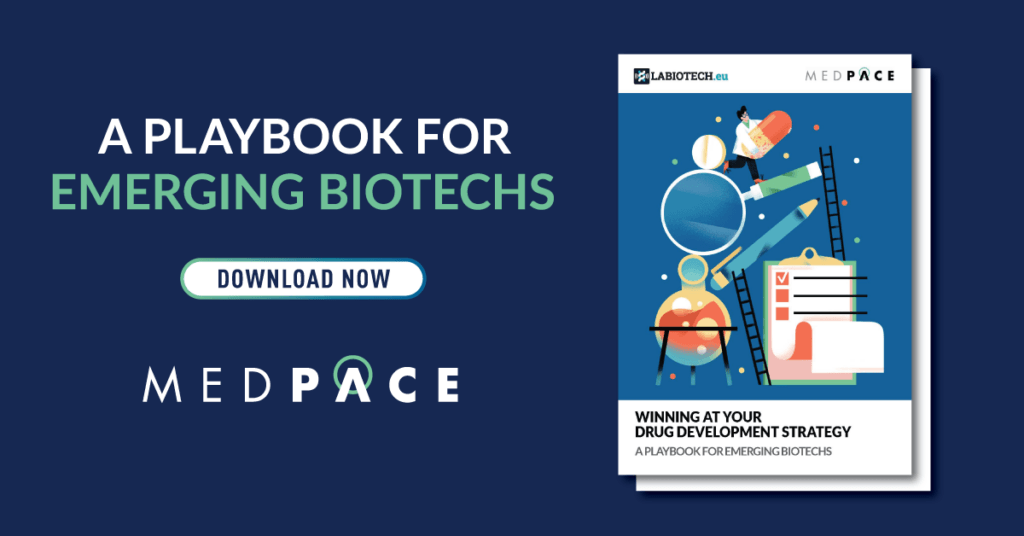Medpace was recently featured in a whitepaper “Winning at Your Drug Development Strategy: a Playbook for Emerging Biotechs” written by Labiotech – a leading digital media company covering the European Biotech industry. In the whitepaper, they discuss the importance of strategic planning in successful clinical development, what you need to be thinking about and how to move forward.
A Solid Drug Development Strategy is Paramount to Success
The ultimate goal of strategic planning is to embed flexibility in your drug development program. Your development plan is an exercise that requires continued attention in the context of your strategy.
Strategic planning early on can force a company to recognize its goals, and communicate these goals within the organization as well as with the outside world. As emerging biotechs rely heavily on funding, being able to efficiently communicate the goals of a drug development project to potential and dedicated investors can secure financing and provide assurance.
“No strategic planning is ever useful if there is no execution of the plan. Not just doing strategic planning early on, knowing what needs to be executed, and in what time frame, but also how we will accomplish all of these steps. Never forget: if you fail to plan, you plan to fail.” – Reinilde Heyrman, Vice President of the Medical Department at Medpace
Besides time management, resource allocation, and communication, strategic planning also involves a number of different compound development stages. These include the establishment of a medical or laboratory strategy; a therapeutic development strategy; and understanding and planning for regulatory processes. Each of these topics is covered in more detail in the paper.
Laboratory Strategy
A biomarker can support efficacy studies, eliminate unnecessary testing, can help identify and understand patient populations, support the choice of different cell lines, and make drugs safer. In short, a well-established biomarker can save you a lot of headaches.
“Choosing the correct biomarkers for a study is important to make sure the new therapeutic is having the desired efficacy results,” Jerry Becker, Associate Director of Laboratory Scientific Affairs at Medpace
Therapeutic Strategy
Therapeutic development includes multiple activities put in place to support the clinical development plan including non-clinical in vitro and in vivo studies, manufacturing, and clinical pharmacology assessments. The keyword here is flexibility. Even while you’re still in the strategic planning phase, you want to make sure you’re designing your manufacturing and non-clinical programs to ensure that you can do what you planned when you get to the clinical phase.
Regulatory Strategy
Regulatory processes for global clinical trials can be complex, and therefore require careful consideration and strategic planning. Early alignment with the regulatory authorities is often essential to prevent unexpected or additional development activities or a delay in initiating clinical trials or receiving marketing approval. By providing a detailed plan and communicating early with the regulatory authorities, drug developers can receive feedback that enables the progress of clinical trials and ensures the biotech has understood the regulator’s perspective on the proposed development plan.
Download the Playbook
The newly published playbook is designed as a sequel to “A Toolkit for Emerging Biotechs” created by Medpace and Labiotech, and guides you through the most important steps of planning a successful drug development strategy.
